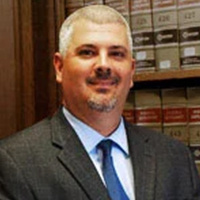Capron RICO Act Lawyer, Virginia
Sponsored Law Firm
-
 x
x

Click For More Info:
-
Randall, Page, & Bruch, P.C.
28319 Southampton Pkwy Suite B Courtland, VA 23837» view mapCriminal Defense Trusted. Creative. Responsive.
Our solid qualifications as individual legal professionals, our well-oiled teamwork and our dedication to our clients’ best interests are hallmarks of our law practice.
800-759-7991
Not enough matches for Capron RICO Act lawyer.
Below are all Capron Criminal lawyers.
Jack T. Randall
✓ VERIFIEDAt Randall, Page & Bruch, P.C., we are your experienced, local and effective traffic defense attorneys. We focus on traffic offenses, criminal defense... (more)
Paul Freeman
✓ VERIFIEDLawyer Paul Freeman earned his Bachelor of Science degree at Norfolk State University and his master’s degree at the same university. Following his ... (more)
Michael Carl Tillotson
✓ VERIFIEDI strongly believe that if you are accused of a DUI/DWI, you deserve the best representation possible. This includes having an attorney who knows ever... (more)
Jeffrey Cantwell Martin
✓ VERIFIEDMr. Martin received his undergraduate degree from Towson University, where he graduated summa cum laude with a host of scholarships and awards. While ... (more)
FREE CONSULTATION
CONTACTFREE CONSULTATION
CONTACT Jack T. Randall Courtland, VA
Jack T. Randall Courtland, VA Practice AreasExpertise
Practice AreasExpertise




